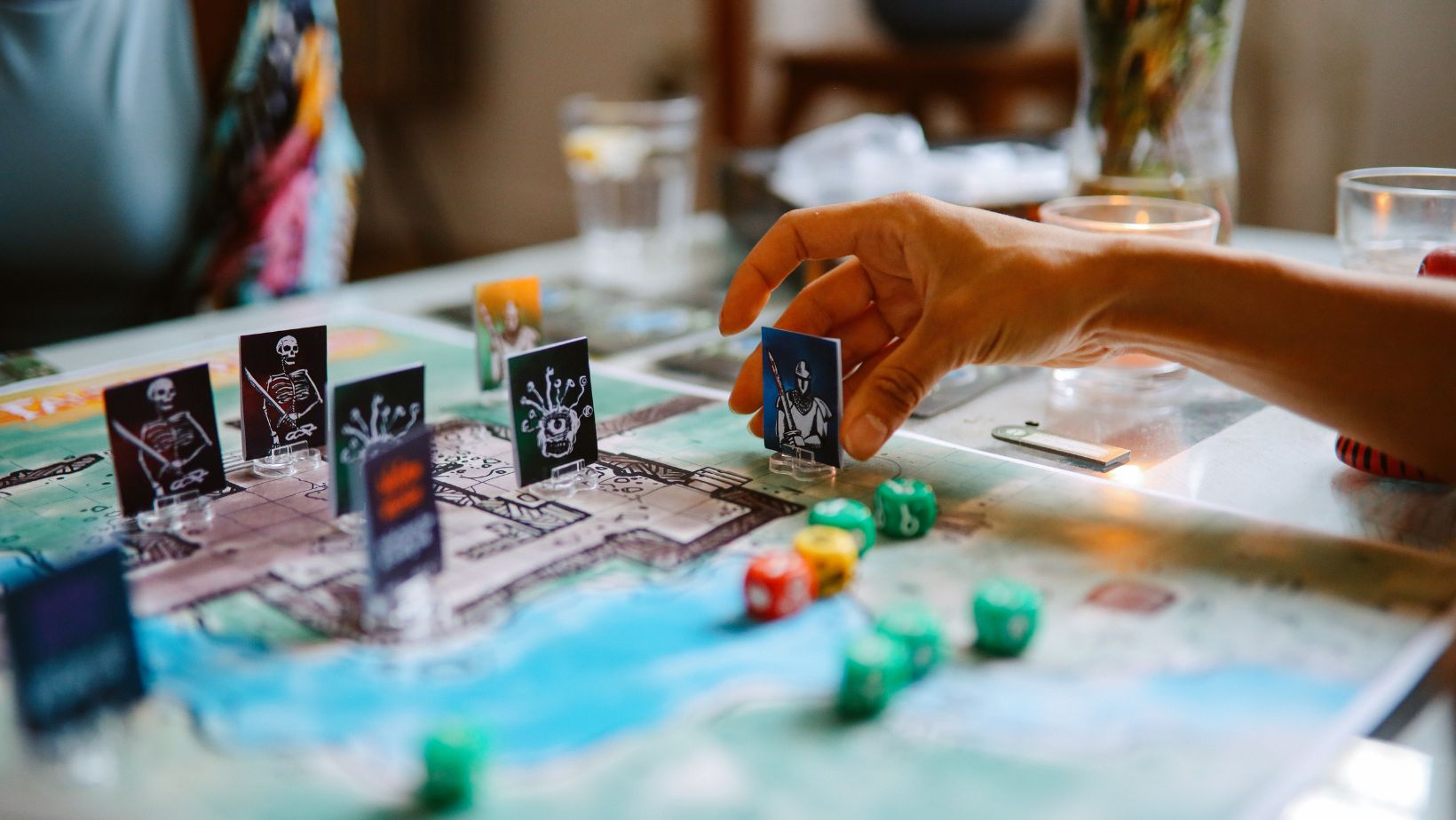
Board games have evolved into a vibrant blend of strategy and social interaction, captivating players of all ages. Among them, strategy board games stand out for their ability to challenge the mind and foster critical thinking skills. These games require players to plan, adapt, and outwit their opponents, making every move count.
From classic titles like Chess and Risk to modern hits like Catan and Ticket to Ride, the world of strategy board games offers endless possibilities for fun and competition. Whether players are strategizing their next move or negotiating alliances, the thrill of outsmarting an opponent keeps them coming back for more. Dive into this engaging realm and discover how these games can sharpen skills while providing hours of entertainment.
Strategies Board Game
Strategies board games emphasize critical thinking, planning, and decision-making. Players engage in complex scenarios, requiring them to adapt and devise effective tactics to outsmart opponents. Various strategy games exist, each offering unique mechanics and objectives, catering to diverse player preferences.
Classic games like Chess feature direct confrontation and require long-term planning, while others, such as Risk, involve elements of chance along with strategy. Modern games, including Catan and Ticket to Ride, introduce resource management and tactical path-building, enhancing player interaction.
Frequency of play affects skill development. Regular players refine their strategic thinking, improving their abilities over time. Many games also incorporate teamwork, increasing social dynamics and fostering collaboration. This blend of competition and cooperation enriches the overall gaming experience.
Strategies board games vary in complexity, making them accessible to casual gamers and enthusiasts alike. Diverse themes and mechanics ensure that new and seasoned players alike find enjoyment and challenge. Whether an engaging family game night or a competitive tournament, strategies board games deliver immersive experiences that encourage skill growth and social interaction.
Key Elements of Gameplay
 Strategy board games encompass essential gameplay elements that enhance player engagement and challenge. Understanding game mechanics and player interaction is crucial for appreciating their intricate design.
Strategy board games encompass essential gameplay elements that enhance player engagement and challenge. Understanding game mechanics and player interaction is crucial for appreciating their intricate design.
Game Mechanics
Game mechanics serve as the foundation for player actions and decisions. Various mechanics include:
- Resource Management: Players allocate resources effectively to develop strategies.
- Action Points: Players use action points to perform multiple actions within their turn, adding depth to decision-making.
- Tile Placement: Players strategically place tiles to expand their territories or achieve specific objectives.
- Variable Player Powers: Players utilize unique abilities that add complexity and encourage diverse strategies.
- Turn Order: Players strategize based on their position in the turn order, often manipulating it to gain advantages.
These mechanics create diverse gameplay experiences, enhancing replayability and strategic depth.
Player Interaction
Player interaction significantly influences the competitive nature of strategy board games. Levels of interaction include:
- Direct Conflict: Players engage in head-to-head confrontations, testing their skills against one another.
- Trading: Players negotiate trades, fostering collaboration or rivalry while pursuing individual goals.
- Blocking: Players devise strategies to counter opponents’ moves, thwarting their progress.
- Alliances: Players form temporary alliances that may shift throughout the game, adding layers of social dynamics.
- Influence and Control: Players influence game outcomes by controlling key areas or resources, affecting opponents’ strategies.
These forms of interaction accentuate the strategic elements, contributing to the overall excitement and complexity of gameplay.
Popular Strategies Board Games
Strategy board games encompass a wide range of classic and modern titles that engage players in critical thinking and tactical gameplay. Here’s a look at some of the most popular choices in both categories.
Classic Titles
- Chess: Chess, a two-player game, features an 8×8 board where each player maneuvers 16 pieces, including pawns, knights, bishops, rooks, a queen, and a king. Strategy lies in positioning and anticipating the opponent’s moves.
- Risk: Risk involves world domination through military strategy. Players deploy armies to conquer territories, balancing offense and defense to outplay opponents, highlighting alliances and betrayal.
- Go: Go, originating from China, focuses on territorial control. Players use black and white stones on a 19×19 grid to surround opponents’ stones, promoting deep strategic thinking.
- Settlers of Catan: Known for resource management, Catan tasks players with building settlements and roads while trading resources like wood, brick, and wheat. Strategic placement of settlements can significantly influence the game’s outcome.
- Ticket to Ride: Ticket to Ride combines route building with set collection. Players collect train cards to claim railway routes across a map, merging strategy with planning to achieve destination tickets.
- Pandemic: Pandemic, a cooperative game, challenges players to work together to stop global outbreaks. Each player assumes a unique role with special abilities, necessitating teamwork and strategic resource management.
- Terraforming Mars: Players act as corporations working to make Mars habitable while competing for resources. The game incorporates unique game mechanics like resource management and card drafting, enhancing strategic depth.
- Wingspan: Wingspan, an engine-building game, invites players to attract birds to their wildlife preserve. With unique player powers and resource utilization, strategy revolves around bird selection and habitat expansion.
Tips for Winning Strategies
Players can enhance their chances of winning strategy board games by implementing a few proven tactics. These strategies focus on analyzing opponents and mastering resource management.
Analyzing Opponents
Understanding opponents’ behaviors and tendencies improves gameplay outcomes. Players should observe their opponents’ moves to identify patterns and potential strategies. By tracking their resource expenditure, positional plays, and actions, a player can anticipate future decisions. Players might also adapt their strategies based on opponents’ strengths and weaknesses. Noting when an opponent shows aggression or plays defensively provides insight into when to take risks or play conservatively. Communication also plays a part; engaging with opponents through trading or discussion can reveal their intentions and alter dynamics in their favor.
Resource Management
Effective resource management serves as the backbone of strategic gameplay. Players need to prioritize gathering and allocating resources efficiently to influence the game’s outcome. Establishing a sustainable resource pipeline often leads to long-term advantages. Players should consider investing in resource production early, while balancing the use of immediate resources for tactical advantages. Planning for future turns enhances resource utilization; anticipating shortages and planning ahead mitigates risks. Players can also trade resources wisely to strengthen their position while limiting opponents’ options. Key to success is understanding when to save resources for impactful future moves versus when to expend them for quick gains.
Fostering Teamwork
Strategy board games offer a captivating blend of challenge and social interaction that can engage players for hours. They encourage critical thinking and adaptability while fostering teamwork and collaboration. With a wide range of classic and modern titles available, there’s something for everyone, whether it’s the strategic depth of Chess or the resource management found in Catan.
Players can enhance their skills through regular play and by mastering key strategies. Understanding opponents and managing resources effectively are vital components of success. As players immerse themselves in these games, they’ll not only enjoy memorable experiences but also develop valuable skills that extend beyond the game board.
